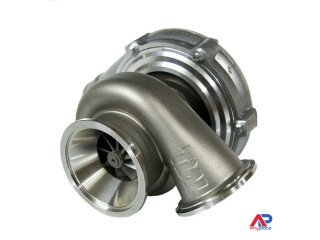Glass Drilling Machine
2022-06-14 14:00 Phones & Tablets Sahāranpur 405 views Reference: 1111Location: Sahāranpur
Price: Contact us
Machining of brittle materials is a complex process where crack propagation and fracture risk has to be taken into account in order to improve workpieces lifespan. Machined brittle material workpieces have application in a wide variaty of technology fields, such as civil engineering, transports technology, or optics.
Grinding with a Glass Grinding Machine is the main machining process for producing glass workpieces. However, cutting forces during grinding result in the formation of damaged surfaces which require a polishing operation to complete the machining process. Moreover, damage may propagate under the surface, causing the workpiece to break. Thus, it appears necessary to control the surface damage and roughness during the grinding process.
In order to characterize ground glass surfaces, Ra is the main normalized parameter being used. Yet this parameter doesn't allow the detection of crack growth. We propose here to characterize ground glass surfaces using more appropriate 2D and 3D roughness parameters, such as the ones extracted from the Abbott-Firestone curve Rk, Rvk, Mr2 and their 3D equivalents. Using these parameters, we have determined cutting conditions that improve surface roughness of ground glass workpieces. Considering the large amount of parameters defining the grinding process, a design of experiments using response surface methodology has been developed for this purpose. We have determined optimized cutting conditions that allow to minimize depth and amount of valleys on the brittle material surface, and thus minimize the crack propagation risk.
As for the process for glass, a Glass Drilling Machine for the drilling for glass is also important besides grindind. And hoe to use a drilling machine properly? You can drill glass without breaking it, but you need to use the right tools. The first critical choice is what drill and drill bits to use. To cut glass, you'll have to use a drill bit made of either tungsten carbide or diamond. If you use a diamond drill bit, don't use a hammer drill, as that will damage the diamond drill bit.
When you decide where to drill on the glass, stay away from the edges and corners. You'll want to be at least three-quarters of an inch away from any edge to lessen the chance of cracking the entire sheet. Next you'll want to secure the glass; how you do this will depend on the shape of the glass. For example, you'll secure a glass sheet differently than a glass bottle. The key is to use something sturdy, yet soft, that can absorb the vibration. A rubber pad would work well under a glass sheet.
Once you start drilling, start with a slow speed and light pressure. If you're using a diamond drill bit, you'll want to start with a smaller size than you'll need later. Drilling can produce heat, so make sure to keep the area cool. You can use water by spraying the area or even placing the object in water as you drill it. A common recommendation is to drill just half way through the glass without breaking through it. Then turn the glass over and drill fresh from the other side. This can create a hole that's a bit off-center, but it reduces the chances of cracking the glass.
Lastly, remember some key safety precautions. Wear safety goggles, protective gloves and a mask (you don't want to inhale glass dust). Make sure the drill bit is securely fastened into the drill before turning it on.
Except for these two mathods, there are some other processes with different Glass Processing Machinery may used for a fine glass products such as Glass Cutting Machine, Glass Tempering Furnace, Glass Washing Machine, Glass Lamination Machine, etc. And without doubt, these machines have to be equipped with different Glass Machine Consumables.














